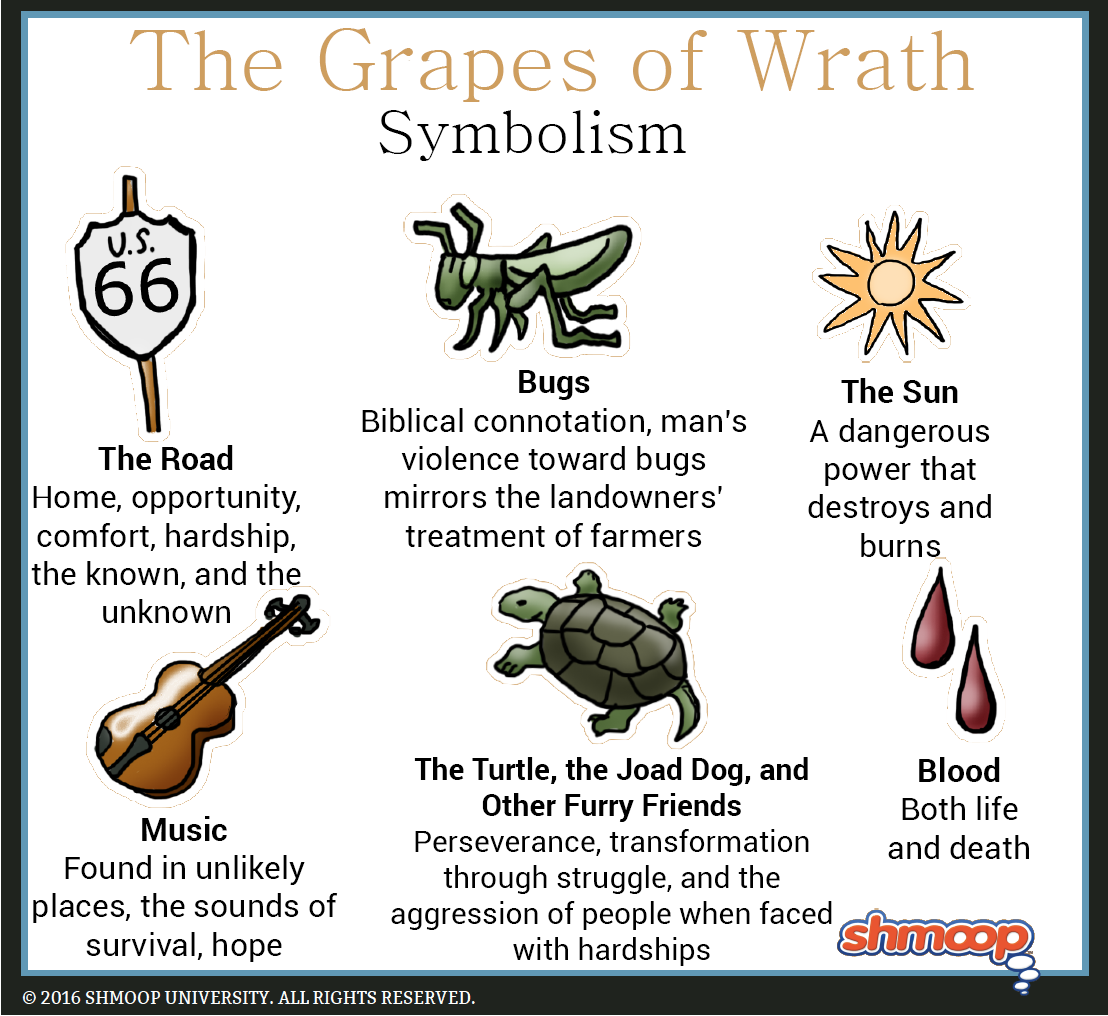Symbolism, Imagery, Allegory
 (Click the symbolism infographic to download.)
(Click the symbolism infographic to download.)
Please Do Stop The Music
In the days before playlists, you got music where you could: from a banjo, a harmonica, a washboard... or even a car. For the Joads, this weird car-music was the most important, because it told them whether their sole means of transportation was in working order or not.
When you have no choice but to buy a used car from a slimy used-car salesman (is there any other kind, at least in literature?) you have to listen intently for the car's rhythms and melodies. Learning to listen to the car's music becomes a means of survival. One family listens as "the high hum of the motor dulled and the song of the tires dropped in pitch" (2.64), and our narrator describes the panic and anxiety that comes from driving a used car across the country:
Listen to the motor. Listen to the wheels. Listen with your ears and with your hands on the steering wheel; listen with the palm of our hand on the gear-shift level; listen with your feet on the floor boards. Listen to the pounding old jalopy with all your senses, for a change of tone, a variation of rhythm may mean – a week here? (12.6)
That's a terrifying sort of music. We're not going to create a "Broken Car" channel on Pandora any time soon.
Speaking of terrifying music: The Grapes of Wrath gives us that fascinating tidbit that Tom Joad made and heard more music in prison than he does when he is a free man. He even tells the preacher, "me an' some guys had a strang band goin'. Good one. Guy said we ought to go on the radio" (4.68).
Why do you think these two primary examples of music are so completely ominous? What other music appears in this novel?